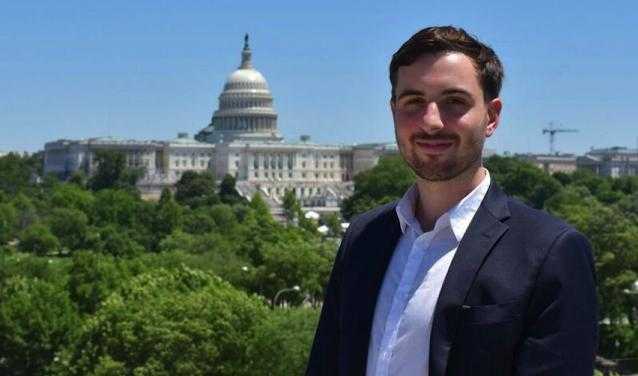Home>“Work doesn't have to feel like work”

11.08.2017
“Work doesn't have to feel like work”
Originally from Vancouver, Zak Vescera is pursuing the dual degree between the University of British Columbia (UBC) and Sciences Po. He has completed two years at the Reims campus, where he studied European and American relations, and will matriculate to UBC in the fall, where he intends to major in International Relations, with a speciality in security, and minor in French.
How did you find out about the UBC-Sciences Po dual degree?
Z.V. : It was almost completely by accident, as the best things in life often are. As a student, I wanted a challenging and immersive social sciences environment, but also wanted to travel outside my home country-- without breaking the bank. I had just turned down a place at NYU because it was too expensive for me and my family to afford, and my friend said "Hey, have you heard of this weird program with UBC and this place in France?" I sent in my application three days later, and it worked out alright.
What drew you to the Reims campus?
Z.V. : I chose Reims for many reasons. In high school, my favourite class during senior year was AP American History— especially since it was taught by a British-Canadian, which brought what you could call a critical perspective to the course. At the same time, it really opened my eyes as to the profound history of the world’s superpower. I saw a potential career or at least stay in America in my future. At the same time, France offered a chance to learn a new language, experience a completely different country, and really put me out of my element. Reims was the perfect marriage between the two.
You were active in many associations in Reims, working in large part on communications. Can you tell us a little more about your experience working the media-communications angle in these associations?
Z.V. : On campus I was one of three elected student representatives for our cohort, the Secretary and Comm head for Reims International Model United Nations (RIMUN), a show host on Reims-City Broadcasting (RCB), Humans of Sciences Po for the Yearbook, one of the executives of Canada on Campus, and formerly a writer for the Sundial Press-- so yeah, I was pretty immersed in stuff! Frankly, I took on way too much-- but I learned a lot in the process, both about my strengths and my limits.
For me, media-- whether it's an article I write, a speech I do, or a radio show I do-- is about transmitting an idea as clearly as you can, as quick as you can. I won't say every piece of Comm I did was “a success,” but I definitely found great results in pushing envelopes. The reality is that anyone can write a generic advertisement and set up a Facebook event, so you have to get funky. Beyond advertising, there's also internal comm, which is often the opposite: you need to be as direct as possible. No adjectives, no colourful banners, just directions so simple that no one could mess them up. There's a duality between the creative, whacky side of advertising and the austere directness of an internal memo.
What inspired you to intern at the Canadian embassy in Washington, D.C.?
Z.V. : Canada on Campus was really a fledgling association, but through it I grew to appreciate how little people know about Canada, even when Canada's role in the world-- and especially its relationship with the States-- is so comprehensive on every level. After two years studying America, I decided it was time to dip my toes in, and the Embassy was a natural liaison between the three countries; I had my Canadian upbringing, the French I'd learned abroad as a workplace asset, and my subject country as a new home.
Many of the Canadians on Campus also owe a shout out to Moira Wyton. I would say that prior to her work promoting Canadian culture as a member of Canada on Campus and advocating for more Canadian material in our courseload, Canada wasn’t even part of the discussion. We’re still underrepresented on campus, but I remember I started to see Maple Leafs flying alongside the Stars and Stripes on campus events near the end of last year, and that really made me smile.
What are your primary responsibilities and tasks at the embassy?
Z.V. : The media relations department at the Embassy handles a range of files dealing with the Embassy's interaction with media, both American and Canadian. Our work ranges from social media output to Canadian expats in the United States to examining Canada’s place in the media to preparing press appearances and interviews for staff. It’s an awesome type of job where frankly anything can happen.
What do you aspire to do later on?
Z.V. : I'm considering a career in the foreign service, a stint as a journalist, working at an NGO, tackling corruption, maybe working in political campaigns... there are a lot of options and choices to be made. The only prerequisite for me is that work should be challenging, but it shouldn't feel like work. I've learned through this internship that work doesn’t have to feel like work if you love doing it, and I can only hope I’ll be lucky to have jobs like this in the future.
Related Links